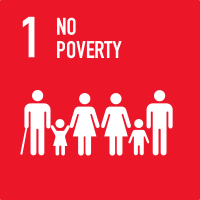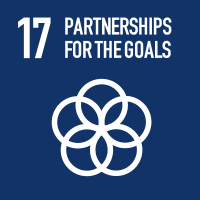Studying at the University of Verona
Here you can find information on the organisational aspects of the Programme, lecture timetables, learning activities and useful contact details for your time at the University, from enrolment to graduation.
Type D and Type F activities
This information is intended exclusively for students already enrolled in this course.If you are a new student interested in enrolling, you can find information about the course of study on the course page:
Laurea magistrale in Governance dell'emergenza - Enrollment from 2025/2026| years | Modules | TAF | Teacher |
|---|---|---|---|
| 1° 2° | Italy in the world (2 cfu) | D |
Giulia Bazzoni
(Coordinator)
|
| years | Modules | TAF | Teacher |
|---|---|---|---|
| 1° 2° | STEEL MILL NLMK VERONA - LOGISTICS E 2023 SUSTAINABILITY REPORT | D | Not yet assigned |
| 1° 2° | INFRASTRUCTURE, LOGISTICS, INDUSTRY, AEROSPACE: STRATEGIES AND ACTIONS IN THE NEW GEOPOLITICS | D | Not yet assigned |
| 1° 2° | PROJECT WORK - AMALGAMA CBRN (FIRST AID AND CCA MED LINE) | F |
Matteo Nicolini
(Coordinator)
|
| 1° 2° | Project work “workshop on emergencies: theory and practice” | F | Not yet assigned |
| years | Modules | TAF | Teacher |
|---|---|---|---|
| 1° 2° | Italy in the world (2 cfu) | D |
Giulia Bazzoni
(Coordinator)
|
| years | Modules | TAF | Teacher |
|---|---|---|---|
| 1° 2° | LAB.: SOCIAL SUSTAINABILITY LEGAL CLINIC | F |
Venera Protopapa
(Coordinator)
|
| years | Modules | TAF | Teacher |
|---|---|---|---|
| 1° 2° | GREEN WELLBEING IN OUR CITIES. IN SEARCH OF DATA, NEEDS AND DESIGN EXPERIMENTS. | D | Not yet assigned |
| 1° 2° | Project work - Emergency management in Italy | F | Not yet assigned |
| years | Modules | TAF | Teacher |
|---|---|---|---|
| 1° 2° | LAB.: SOCIAL SUSTAINABILITY LEGAL CLINIC | F |
Venera Protopapa
(Coordinator)
|
| years | Modules | TAF | Teacher |
|---|---|---|---|
| 1° 2° | GREEN WELLBEING IN OUR CITIES. IN SEARCH OF DATA, NEEDS AND DESIGN EXPERIMENTS. | D | Not yet assigned |
| 1° 2° | Project work - Emergency management in Italy | F | Not yet assigned |
| years | Modules | TAF | Teacher |
|---|---|---|---|
| 1° 2° | Italy in the world (1 cfu) | D | Not yet assigned |
| 1° 2° | Project work - la risposta operativa nella gestione dei processi emergenziali | F | Not yet assigned |
| 1° 2° | Transnational labor law as a spiderweb | D | Not yet assigned |
Governance of international crises (2024/2025)
Teaching code
4S003637
Teacher
Credits
6
Language
Italian
Scientific Disciplinary Sector (SSD)
IUS/13 - INTERNATIONAL LAW
Period
2° periodo lezioni - GEM (aprile/maggio), 2° periodo lezioni - GEM (febbraio/aprile)
Courses Single
Authorized
Prerequisites and basic notions
To understand the topics covered in the course, students must have general legal notions on the structure of the State and the sources of law. This precondition is valid for both attending and non-attending students, and is proven by passing the relevant first year exams.
Program
Course Objectives:
– Understand the structure, sources, and subjects of International Law.
– Analyze the role and function of international organizations and courts in addressing international crises.
– Apply International Law principles to contemporary global issues.
– Critically assess the impact of International Law on State behaviour and international relations from the perspective of international crisis resolution.
These objectives will be achieved through comprehensive lectures and direct involvement of students in the analysis of study material and case-law. This will help strengthen their critical thinking and their ability to explain and argue the topics covered with appropriate terminology. Based on the knowledge acquired, students will be able to apply concepts and logic of international law to the analysis of specific cases.
Course Structure:
A – The Structure of International Law:
- The Nature and Fundamental Concepts of International Law
- The Subjects of International Law
- The Sources of International Law
- Jurisdiction and Immunities
- International Diplomacy
- The Individual in International Law, The protection of Human Rights
- The United Nations
- The Law of State Responsibility
- International Courts and Tribunals
- Sanctions, Countermeasures, and Collective Security
B - The Substance of International Law
- The Use of Force
- Law of Armed Conflict
- International Criminal Law
- The Law of the Sea, the Air, and Outer Space
- The Global Economy and Global Economic Governance
- Environment, Sustainable Development, Public Health
C - Focus: The Governance of International Crises
- International Peace and Security
- Covid-19 and International Law
- International Disaster Response Law
- Migration crisis
Bibliography
Didactic methods
The course is structured in a series of lectures and seminars, with the possible assistance of telematic tools. Supplementary reading material related to the topics covered in class, such as case-law, texts of resolutions, declarations, and treaties, is indicated during the lessons.
Required readings:
- J. Klabbers, International Law, 4th edition, Cambridge University Press, 2023.
Tutoring activities are planned and agreed upon to support students.
Learning assessment procedures
Individual interview (lasting about 20 minutes)
Final Examination: 100% of the final mark (0-30 scale)
Evaluation criteria
- Attending Students: The exam (interview) is designed to reflect the material covered in lectures, allowing students to demonstrate the understanding and analytical skills developed through active participation and engagement with the course content.
- Non-Attending Students: The exam (interview) emphasizes comprehensive knowledge and independent study by students, with particular attention to the application of general principles, concepts, and detailed analysis based on the entire syllabus and recommended readings.
Exam language
Italiano, English




